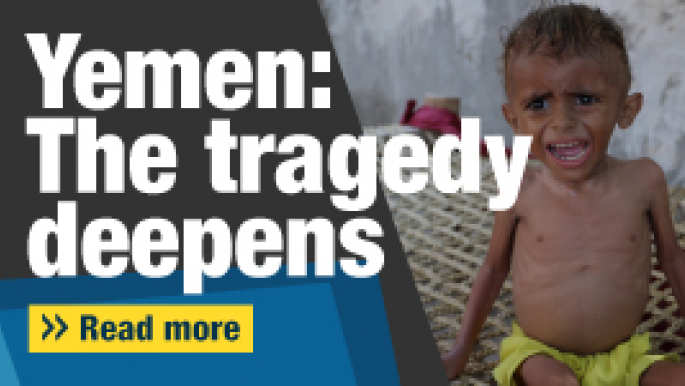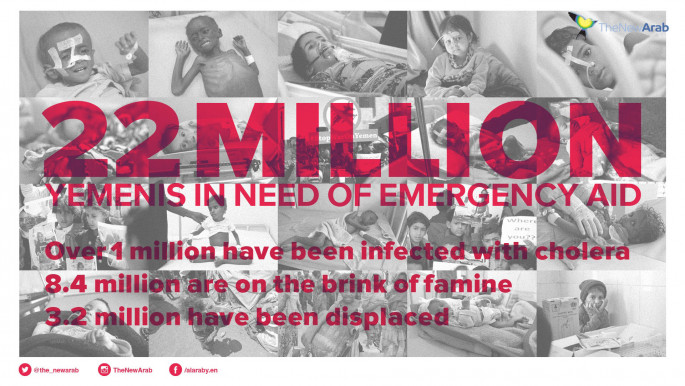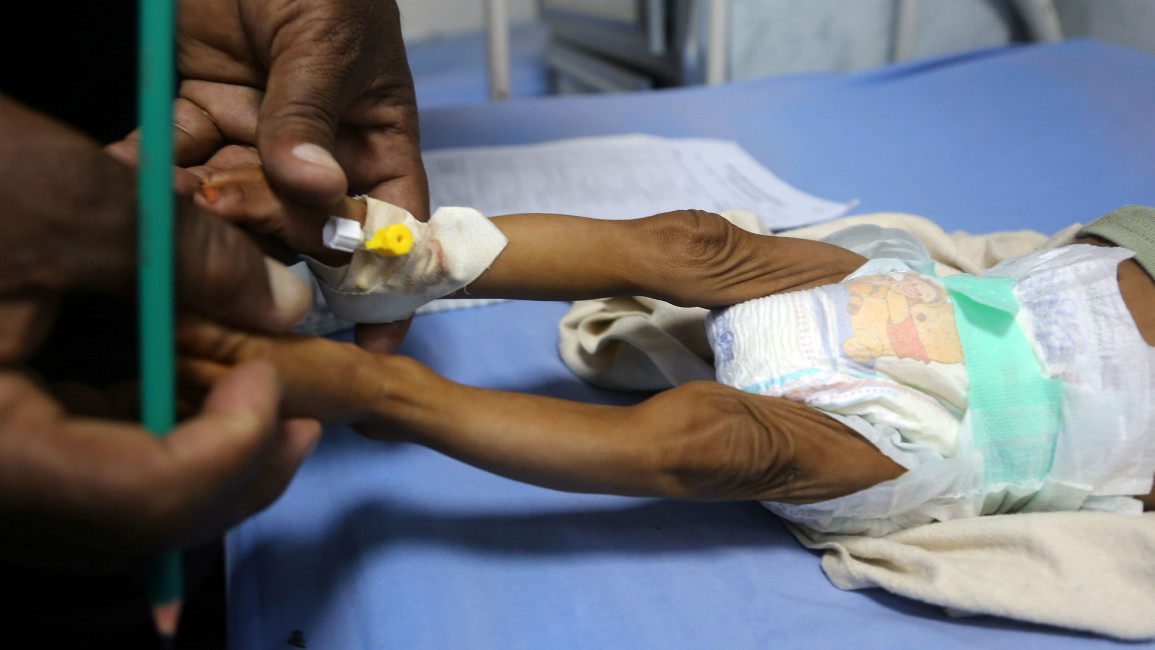More than 22 million Yemenis are now in need of humanitarian aid
Some 8.4 million people are at risk of famine, up from 6.8 million in 2017, the UN humanitarian affairs office (OCHA) said.
A total of 22.2 million people, or 76 percent of Yemen's population of 29 million, are dependent on some form of assistance, an increase of 1.5 million people over the past six months.
The United Nations' efforts to address what it has described as the world's worst humanitarian crisis have been hampered by a crippling blockade of rebel-held ports by the Saudi-led coalition that intervened in support of the beleaguered government in March 2015.
In a post on Facebook on Tuesday, Yemen's Prime Minister Ahmed bin Dagher shared a letter urging the government's backers to transfer cash to the central bank to "save Yemenis from famine," urging them to "act now, not tomorrow."
On Wednesday, Saudi Arabia announced a $2 billion bailout for Yemen’s government after earlier pleas to save the local currency from "complete collapse".
 |
"To address the deteriorating economic situation faced by the Yemeni people as a result of the actions of the Iranian-backed Houthi militias, King Salman bin Abdulaziz has issued a directive to transfer a $2 billion deposit to the central bank of Yemen, in continuation of the kingdom's support of the Yemeni people," the interior ministry said.
Saudi Arabia is leading a military coalition battling the Houthi rebels in support of Yemen's beleaguered government. But the 2015 intervention has triggered widespread criticism from the international community.
Following a rebel missile attack on Riyadh airport in November, the coalition even halted UN aid deliveries but it has since eased that measure.
| Read also: Five children killed or injured in Yemen war every day |
On Monday, a ship carrying four US-purchased mobile cranes that had been blocked by the coalition for months docked in the main rebel-held port of Hodeidah.
Around 70 percent of Yemen's imports pass through Hodeidah and UN spokesman Stephane Dujarric said the cranes will "significantly boost the discharge of humanitarian cargo".
"This will allow for faster delivery of relief items for Yemeni families in the grips of the world's biggest hunger crisis," he said.
But UN aid officials warn that access for humanitarian deliveries remains a concern even if the blockade is lifted.
More than 10,000 people, mainly civilians, have been killed since the coalition intervened in 2015, while over 50,000 have been wounded and millions displaced from their homes.
As Yemen's health care system has been brought to the brink of collapse, more than one million people have been infected with cholera, of whom more than 2,000 died, according to the International Committee of the Red Cross.



